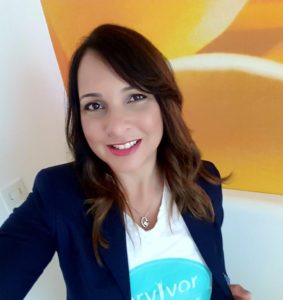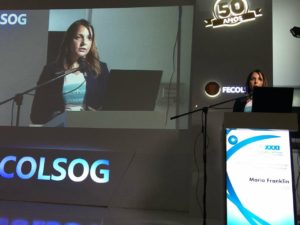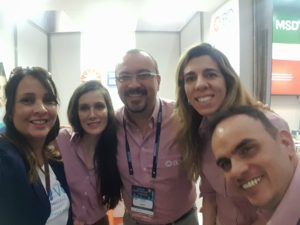Every year, as my birthday approaches, I go into reflection mode and start thinking about life. Life as it was. Life as it is. Life that almost wasn’t.
My life was forever altered by a diagnosis of cervical cancer at the age of 27. The days following the diagnosis were rough. Within a month of my diagnosis I landed in the hospital with shortness of breath and blood counts so low I needed my first blood transfusion. I spent exactly 30 days in the hospital, not sure if I was coming out alive. If you were around me at that time, you know how terrifying this period was, you know that my coming out of that hospital alive was nothing but a miracle (those were my pneumologist’s actual words). So here I am, celebrating #48 (or the 21st birthday I get to celebrate post diagnosis).
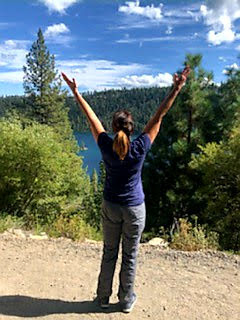
Survival… Life after cancer… This is something that doesn’t happen to many of the women diagnosed with cervical cancer. Within the last year my Cervivor community lost 4 beautiful women in the prime of their lives as a consequence of cervical cancer. In the USA, where approximately 13,000 women are diagnosed with cancer in the last year, 4,200 women will die due to this cancer. Some people may look at these numbers and think they are small (I’ve been told that before); well let me tell you this: These numbers matter. These numbers matter to the women diagnosed with cancer, hoping they are on the right side of this statistics. These numbers matter to the families of the women who die each year, to the young children that will grow up without their mom… These numbers matter to those of us who survive this disease, because we know how close we cut it, how nerve wracking every follow up is, because the cancer may be gone, but the damage it did to our bodies is permanent (think of infertility, ostomies, lymphedema, neuropathy, bladder problems, just to mention a few). Most importantly, these numbers matter because we can change them. We can change the statistics because we have the means to prevent cervical cancer: The HPV vaccination is the #1 way to prevent cervical cancer. Plain and simple. A vaccine can prevent cervical cancer. I don’t think it can be any easier than that.
We can literally protect our next generations from cancer-causing HPV strains by simply vaccinating our children (as early as 9yrs. old). It is an important vaccine because it would protect them from the high risk strains that are linked to cervical cancer (and cancer of the vulva, vagina, anus, penis, oropharyngeal (back of the throat). Cervical cancer will be like polio; gone, a thing of the past. I would love to see cervical cancer disappear and I believe that is possible with this vaccine.
So each year, around this time, that sense of duty to those who did not make it demands that I tell you to vaccinate your children. That 27 yr. old Maria, terrified at hearing the news that would change her life forever demands that I tell you to vaccinate your children. It is imperative that you do because this is the one cancer we can basically eradicate. Every now and then I see these prayer chains pop up in social media asking you to share a prayer to find a cure for cancer; well, we now have a vaccination that can prevent a cancer and that is an answered prayer.
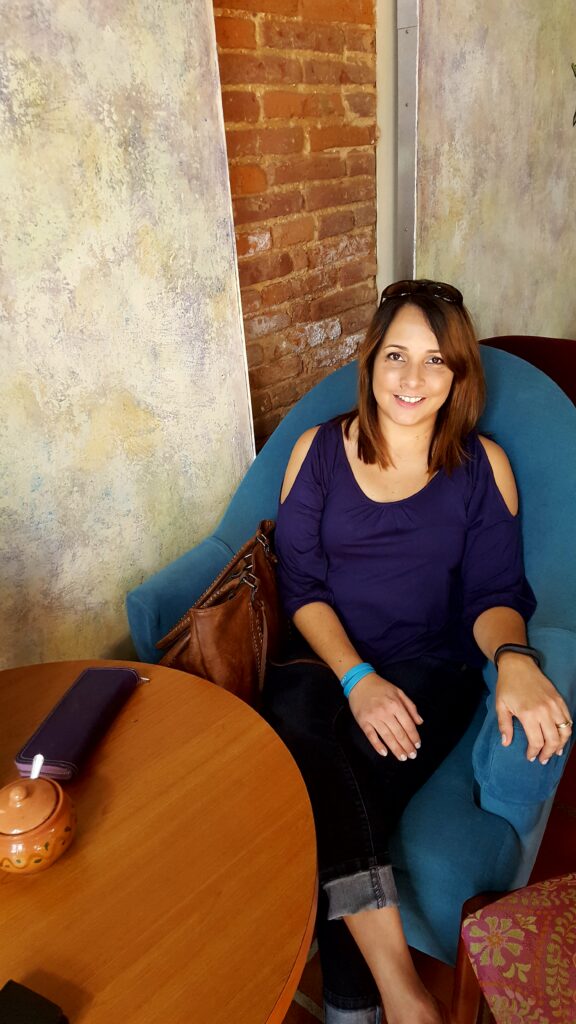
Celebrate my 48th birthday with me by scheduling your well-woman exam and vaccinating your children against HPV. Maria Franklin is a 20-year cervical cancer survivor who is also a part of Cervivor Leadership, and heads our Latina advocacy efforts. She was awarded our 2019 Cervivor Champion Award. Watch her story here.
